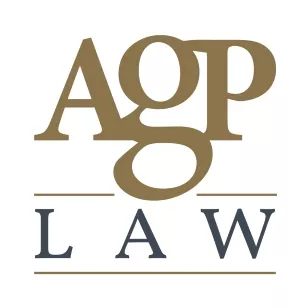- with Finance and Tax Executives
Avoid Risking Sham Trusts and a Guide on Cyprus International Trusts
Establishing a trust is a strategy for managing and protecting assets. However, the concept of a "sham trust" can undermine this goal, posing significant legal and financial risks. In this article, we will explore what a sham trust is and how to ensure that a trust is not considered a sham, with a specific focus on Cyprus International Trusts (CITs). We will further provide a briefing of CITs and how AGPLAW can assist in setting up and maintaining these trusts to ensure compliance and integrity.
..by adhering to best practices and leveraging the benefits of CITs, you can safeguard your assets and achieve your financial and estate planning goals effectively.
Understanding Sham Trusts
A sham trust is an arrangement that appears to be a legitimate trust but lacks the genuine intention to create a legal trust. The essential characteristics of a sham trust include a lack of intention, control retention by the settlor, and a deceptive purpose. In essence, if the settlor and trustees do not intend to adhere to the trust's terms or if the settlor retains control over the trust assets, the trust may be deemed a sham. Furthermore, if the trust is established to deceive third parties or authorities, it can lead to severe consequences.
The legal implications of a trust being deemed a sham are significant. Assets intended to be protected by the trust may become accessible to creditors or other claimants. Additionally, parties involved in the sham trust may face legal penalties, including fines and potential imprisonment for fraudulent behavior. The reputational damage can also be considerable, affecting the entities involved in creating the sham trust.
Ensuring a Trust is not a Sham
To ensure that a trust is not considered a sham, several key steps must be taken. First and foremost, establishing a clear intention and purpose is essential. This involves documenting the intent clearly in the trust deed and ensuring that the actions of the settlor and trustees align with the documented intent. Proper documentation is crucial, including a detailed trust deed outlining the terms, conditions, and objectives of the trust, regularly documented minutes of trustee meetings, and maintaining records of all correspondence related to the trust's administration.
Independence of trustees is another critical factor. Trustees must operate independently and in the best interest of the beneficiaries. This can be achieved by appointing professional and qualified trustees who understand their fiduciary duties and ensuring that the settlor does not exert undue influence over the trustees' decisions. Additionally, adhering to legal and regulatory requirements is essential. This includes ensuring the trust complies with the laws of the jurisdiction in which it is established and conducting regular audits to ensure ongoing compliance and transparency.
Risks to Professional Trustees
Professional trustees face significant risks if they are found to be involved, intentionally or unintentionally, in a sham trust. These risks include legal, financial, regulatory and reputational consequences. Legally, trustees can be held liable for breaching their fiduciary duties, which may result in lawsuits, fines, and even imprisonment. Financially, the trustees may be required to compensate for any losses incurred by the beneficiaries or other parties due to the sham trust. Regulatory, a professional trustee may face risks losing its' license to operate as a service provider or may be subject to significant regulatory penalties. Reputationally, involvement in a sham trust can severely damage a trustee's professional standing and credibility, impacting their ability to conduct future business.
It is crucial for trustees to exercise due diligence in their role, ensuring that all actions are transparent, well-documented, and compliant with legal standards. Regular training and staying updated with regulatory changes are also essential practices for professional trustees to mitigate these risks.
Importance of Working with Professional Trustees
Clients must ensure that they work with professional trustees to avoid the pitfalls associated with inexperienced or unqualified trustees. An inexperienced trustee may inadvertently engage in actions that render the trust a sham, exposing not only themselves but also the settlor and beneficiaries to significant risks. These risks include significant asset exposure, but also legal penalties and reputational damage.
Professional trustees bring expertise and experience to the management of trusts. They understand the complexities of trust law, fiduciary duties, and the importance of maintaining independence and transparency. By working with a professional trustee, clients can be confident that their trust arrangements are managed with integrity and compliance.
Cyprus International Trusts (CITs)
Cyprus International Trusts (CITs) are a popular choice for asset protection and estate planning due to their strong legal framework and Cyprus' favorable tax regime. CITs offer several benefits, including confidentiality, tax efficiency, and flexibility. The Cyprus International Trusts Law of 1992, amended in 2012, governs CITs and provides strong asset protection features, including protection against forced heirship and claims from creditors.
CITs provide a high level of confidentiality for settlors and beneficiaries. The names of the settlor and beneficiaries are not disclosed to the public, and trust documents are not subject to public inspection. This ensures privacy for all parties involved. Additionally, CITs offer significant tax advantages. Income and gains of a CIT are exempt from Cyprus taxes, provided the beneficiaries are non-residents. There is also no inheritance tax in Cyprus, making CITs an effective tool for estate planning.
Flexibility is another key benefit of CITs. Trustees have broad powers to manage and invest trust assets, ensuring optimal asset management. The settlor can specify how and when beneficiaries receive distributions, providing control over asset distribution. The legal framework of CITs also allows for an indefinite duration, offering long-term asset protection and planning.
The content of this article is intended to provide a general guide to the subject matter. Specialist advice should be sought about your specific circumstances.


